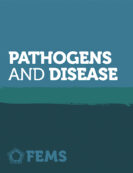Kids, you should care about microbes!
I am only half human, after all
The human body is… only 50 % human. For every cell of our own body, there is another one which is a microbe. The microbes (bacteria, fungi, viruses, and others such as archaea and protists) in our gut, in this case mostly bacteria, can weigh up to 1 kilogram!
Microbes in and on our body have a crucial role in our well-being. For example, microbes on our body act like a second skin, providing added protection against infections and disease. Bacteria in our gut help us digest food, or produce essential vitamins that we cannot make ourselves. And some even affect our moods.
But of course, we don’t see microbes with the naked eye. Maybe this is why they are not considered important by the general public—out of sight, out of mind.
Make microbes visible again
Microbes, also called microorganisms, and their activities have huge and mostly positive effects on humans and the entire planet. They are the life support system of the ecosystem, being largely responsible for photosynthesis (together with plants) and decomposition of dead organic matter (with worms and insects).
But microbes are just like humans: only a few are dangerous to us, but it is the bad guys—e.g. those that cause disease—that get most press coverage.
It is important to remember that the majority of microbes are not harmful or even beneficial for our health and the planet. Hence, everyone should be aware of every-day actions – both as individuals and as communities – which can influence the microbes in and around us, and in turn our environment and well-being.
Examples are how often and with which products we clean our homes, what we eat, whether or not to have animal pets: all actions that can alter the composition of microbes on our skin or in our gut.
Other examples are whether to buy phosphorus-containing detergents, to be vaccinated against infectious diseases, to use pesticides and fertilisers in our gardens, or where to go on holiday, are all examples of decisions which can affect presence and abundance of microbes in rivers, lakes and groundwater, or halt the spread of nasty diseases.
Understanding the importance of microbes is crucial for everyone – kids, teens, adults, and decision makers – and microbiology should be considered part of basic education, just like maths or history.
Do you want to know more?
To have more information on microbes, their activities, and why you need to care about them, read the editorial by Prof. Kenneth Timmis The urgent need for microbiology literacy in society.
All but one of the FEMS journals are fully open access (OA), with one journal, FEMS Microbiology Letters, offering free-to-publish and OA options. Open access is key to supporting the FEMS mission of disseminating high quality research as widely as possible: when high quality, peer reviewed sound science is open access, anyone, anywhere in the world with an internet connection, can read it.







